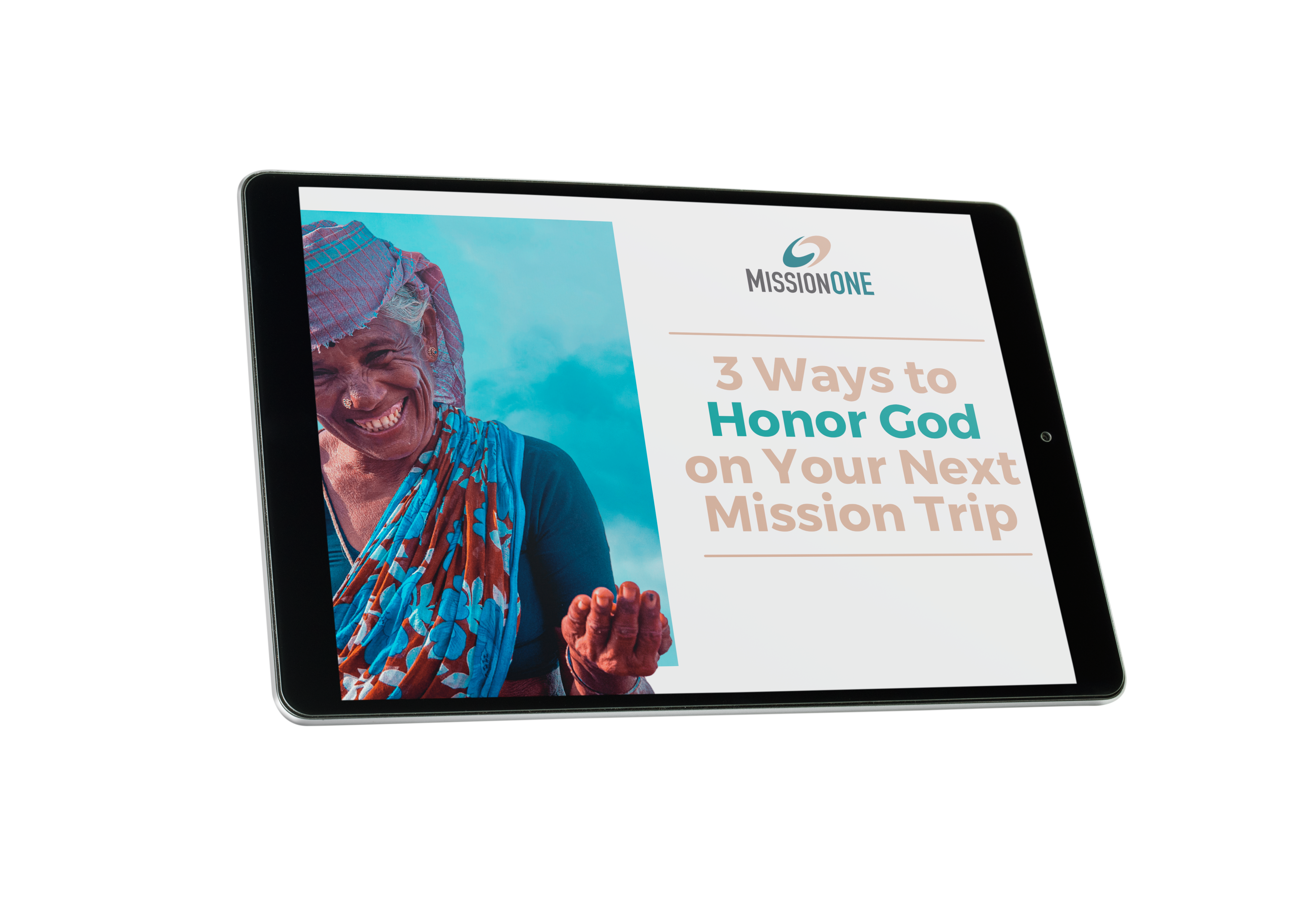“Theology matters for community development because it reminds us that all of life is all for Jesus. The Bible shapes how we see the world, ourselves, and, most importantly, the Lord. The Spirit uses Scripture to change hearts and sustain lifestyles that glorify Christ and honor all peoples.” –Jackson Wu, Theologian-in-Residence, Mission ONE.
Community development has become a major point of conversation in the theological field over the last two decades. As Jackson Wu stated above, missions and theology must go hand-in-hand if we wish to change hearts and build sustainable transformation.
People debate the relationship between development and theology, but when both concepts are applied together, the impact is undeniable.
Our integration of theology and community development allows people to meet Jesus in a way that makes sense to them in their cultural context. It provides the universal truth of God in a way that creates sustainable development and generational transformation. This approach values the spiritual needs of people without ignoring their pressing physical needs. It honors their culture and invites them into the story of God where they deserve to be rather than alienating them. It presents the gospel in the most loving way possible.
Biblical Interpretation And the Importance Of Contextualization
Contextualization is the process in which we interpret, communicate, and apply the Bible within a particular cultural context. Contextualization is critical because it’s easy to overlook things that are very important for a specific cultural context.
All theology is contextualized. In the Bible, God used cultural concepts, terms, and symbols to make sense of who He is and his purposes for the world. However, He revealed himself to ALL nations. This means that because of cultural differences, some cultures may not grasp the significance of certain portions of the scriptures as easily as others can.
There are two kinds of contextualization:
First, exegetical contextualization is reading the Bible through a certain cultural perspective. We want a broader cultural lens to notice what is actually there in the text. Second, cultural contextualization uses a biblical lens to explain what’s happening in the culture.
All this is really about empathy. Good contextualization can allow us to see and understand the world through another person’s eyes. We begin to connect and see transformation along the way. Contextualization affects every aspect of our lives.
Syncretism VS Contextualization
Some people confuse contextualization with syncretism. Syncretism is commonly defined as blending two things together that shouldn’t be. Most people are familiar with “cultural syncretism,” where one confuses the Bible and culture. Yet, “theological syncretism” can be just as dangerous. It happens when our is limited (or syncretized) with a specific school of thought, denomination, etc. It limits and distorts the Bible’s message.
If we settle for this limited truth, we risk compromising what the gospel really intends to show us. For example, a king is a judge, but a judge is not necessarily a king. We don’t want to settle for what’s merely truth; instead, we must contextualize a more biblically robust gospel.
The goal of contextualization is to help people understand and interpret the whole Bible—all of God’s revelation–– so that it can shape our entire worldview. When we do this, we can become disciples and make disciples —not merely converts—who actually make communities more like the Kingdom.
The Bible should shape our message AND our methods. When we take part in community development, we must remind ourselves that we are portraying God’s message to His people from among all peoples.
Sharing God’s Message Properly Among Other Cultures
As we embark on God’s mission, we meet people with cultural perspectives. Sometimes, they interpret words and biblical passages differently from us. So often, their viewpoint does not contradict our theological understanding; it enriches our understanding of Scripture. We need the Global Church to mine the depths of God’s word. There is only one gospel and it should make sense to all nations and cultures. This is why contextualization and theological reflection are essential to the church’s gospel mission..
To understand the gospel most fully, we should discern two types of biblical themes. The first is called “framework themes.”
Framework themes help our presentations be firm and unchanging since there is only one gospel. These themes include Creation (Acts 17), revealing the one true Creator God; Kingdom ( Romans 1:1-4), using royal language speaking of the king and His Kingdom; and Covenant ( Galatians 3:8). The biblical writers present the gospel as the Creator establishing His Kingdom in the world through His covenant promises. He does this through the people, beginning with Abraham, blessing all nations. These themes provide structure and a firm foundation for interpretation.
A second type is called “explanation themes.” They give gospel presentations the flexibility we need to reach people according to their individual needs and context. They help people understand the significance of the gospel.
Explanation themes answer 4 simple questions:
- Who is Jesus?
- What has he done?
- Why does it matter? (e.g., salvation)
- How should we respond?
The order matters. The biblical writers routinely start with who Jesus is and what he’s done before talking about us and our response.
Framework themes and explanation themes serve different functions, but they’re both essential to fully understand the gospel.
Theology and holistic community development go hand-in-hand and allow families to become more like the Kingdom of God.
Mission ONE approaches community development from a holistic perspective, which allows us, along with our global partners, to make a positive impact in the places where we work.
Learn more about the work Mission ONE and our global partners are doing.
Search the Blog
Free Resource

3 Ways to Honor God on Your Next Mission Trip
We're sharing three things you should consider before you organize or participate in an international mission trip, seek to do work in the multicultural neighborhood in your own city, or embark on any cross-cultural partnership.

